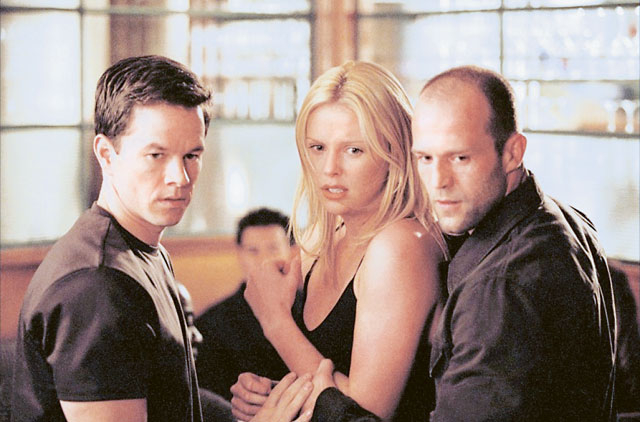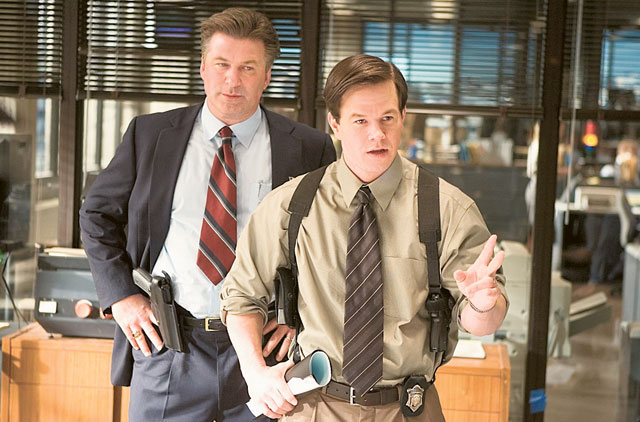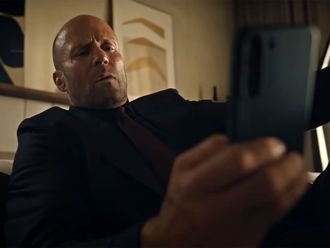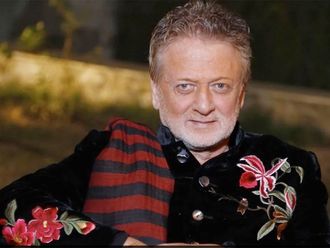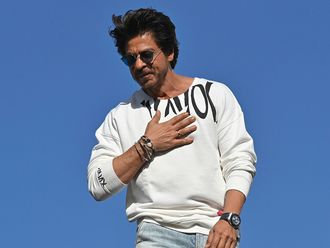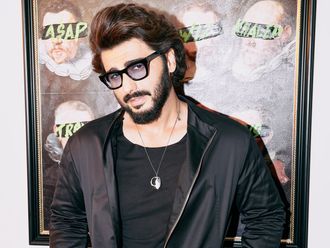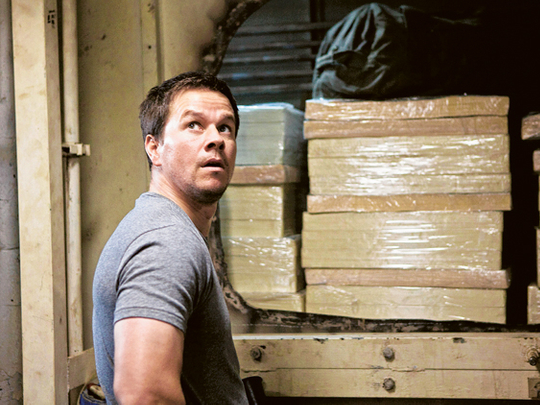
Mark Wahlberg doesn't keep an office. The 40-year old actor, who is one of Hollywood's most bankable stars and is becoming one of its most ambitious producers, prefers to hold court at the Polo Lounge in the Beverly Hills Hotel, a million miles away from his troubled beginnings in Dorchester, Massachusetts.
Whether it's breakfast with his wife and four kids or a meeting with an actor or a business partner, Wahlberg spends hours at the restaurant that once kicked out Marlene Dietrich for wearing pants.
His favourite booth is in the far left corner of the Loggia Room; he knows the maitre d' and wait staff by their first names; even his neighbour stops by to comment on how the construction's coming along on his house.
You keep waiting for Wahlberg to say, "Say hi to your mother," the phrase comedian Andy Samberg used to spoof him on a recurring Saturday Night Live skit.
Wahlberg's preference for the watering hole that hosted some of Hollywood's earliest dealmakers could be taken as a sign that the kid who rose to stardom modelling in his skivvies and rapping about partying finally has become part of the establishment. Wahlberg, though, doesn't see it that way.
Yes, he has an Oscar nomination under his belt for his role in Martin Scorsese's The Departed, produced and starred in his passion project The Fighter (2010) to the tune of $93 million (Dh341 million) at the box office and seven Academy Award nominations, and continues to produce HBO's acclaimed Prohibition-era series Boardwalk Empire.
Outsider
But Wahlberg still sees himself as an outsider. "I'm still on the outskirts a little bit," he says. "I just keep working and working. I want to do more, do better stuff."
In the next 18 months, Wahlberg will star in three films: the crime drama Broken City opposite Russell Crowe and Catherine Zeta-Jones; the offbeat comedy Ted from Seth MacFarlane; and this weekend's release, Contraband. A remake of the Icelandic hit Reykjavik-Rotterdam directed by that film's star and producer Baltasar Kormakur, Contraband sees Wahlberg play Chris Farraday, a reformed con man living in New Orleans who takes one last smuggling job to make good on his brother-in-law's debts.
The film features an ensemble cast that includes Ben Foster, Giovanni Ribisi, Lukas Haas and Diego Luna, with Kate Beckinsale as Wahlberg's wife, and the part fits in nicely with Wahlberg's oeuvre of relatable working men who must fight to save what's theirs. Whether it's heist mastermind Charlie in The Italian Job, commercial fisherman Bobby in The Perfect Storm or foul-mouthed cop Dignam in Departed, Wahlberg's most memorable performances involve characters out to reclaim something they've lost.
While Contraband features some of the same testosterone-fuelled energy that charged The Fighter, the high-stakes heist film felt like an escape to Wahlberg, who shouldered a great deal of responsibility telling Micky Ward's personal story.
"I'm trying to mix it up," Wahlberg said. "After The Fighter, I wanted to do something more entertaining, something more fun."
Kormakur says Wahlberg was his first choice for the role of the charming blue collar lawbreaker.
"When it's real and the background is not far from his home is when he's really strong as an actor," said Kormakur, calling from Iceland during the middle of a blizzard.
For Contraband, the Icelandic filmmaker relied strongly on his own indie background, working his cast and crew as hard as he could to ensure that his entire $25-million budget wound up on the screen. Kormakur's drive impressed Wahlberg's inner producer during the course of the movie's 40 day-shoot in Panama and New Orleans.
"That's what you get when you don't sit around," Wahlberg said. "Baltasar would see a craft service table and say, ‘Get that out of here, there's no lunch.'"
Wahlberg began his producing career in 2004 with the HBO series Entourage; his first produced film was James Gray's 2007 We Own the Night, in which he starred opposite Joaquin Phoenix. He says he reads a lot of scripts, sits in a lot of development meetings and strives to get his projects to the finish line.
Ultimately, Wahlberg and his business partner and manager would like to finance their own films and create their own library of movies and television properties.
According to Sheila Jaffe, Wahlberg's go-to casting director and close friend, "What makes Mark such a good producer is while he's very aware of the budget and pays close attention to the numbers, he has a strong vision of what movie he's making and does whatever he needs to do to reach that vision. He doesn't compromise it for anything."
‘Good salesman'
"I've got good people skills and I'm a good salesman," Wahlberg said. "I'm always ready to tell people that [the right role] will change their life, and you know what, for the most part, it has."
Wahlberg says he came to the movie business back in the early '90s reluctantly, only after Penny Marshall convinced him that the strutting he was doing onstage as Marky Mark and on the streets of Boston as a hoodlum were ideal preparation for a career as an actor.
He says that back then, he gave a lot of thought to the old movies he watched as a kid with his dad, especially the ones starring his favourite actor, James Cagney, and he still does. So while Wahlberg says he comes to the Polo Lounge because it's close to his house and he likes the booths, maybe he's also trying to recapture some of that old Hollywood glory, to conjure the bygone charm of the time when Walt Disney, Spencer Tracy and Darryl F. Zanuck did business at the restaurant following their polo matches, when the green wall phones rang during meals.
"I like to talk to people," Wahlberg said. "I've got one assistant, one BlackBerry. That's my overhead. I don't text that much, or email. I like to sit down face-to-face and have a conversation with you. I'm old-fashioned."


